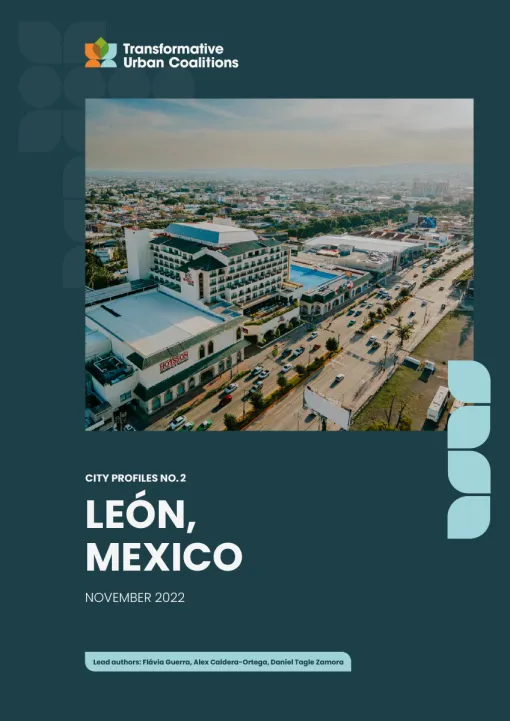
Economic dynamism has been maintained at the expense of rising socio-environmental issues in León, namely the deterioration of air and water quality, the overexploitation of groundwater sources, soil erosion and contamination, deforestation, loss of biodiversity, urban sprawl and inequality. These issues contribute to, and are worsened by, climate change.
León’s civil society has increasingly denounced social and environmental injustices associated with both public and private projects. It demands greater participation in urban decisions around topics such as air quality and transport, water, green public spaces and urban reforestation, and gender – all of which could be entry points for transformative climate action.
Climate governance in León began to materialize in the early 2010s, largely emulating the state’s legal and institutional framework. It has since progressed incrementally with each municipal administration. Nevertheless, mainstreaming of the climate agenda is hampered by several factors, including lack of effective coordination across government bodies and insufficient funding. Furthermore, climate change mitigation projects implemented in León have mostly been aimed at addressing sectoral urban problems, only contributing to reducing emissions implicitly and marginally. Changing this trend requires all urban actors to explicitly integrate climate goals in their agendas and implement them collaboratively.
Strengthening the existing participatory mechanisms in León is paramount to ensure their contribution to effective municipal climate governance.